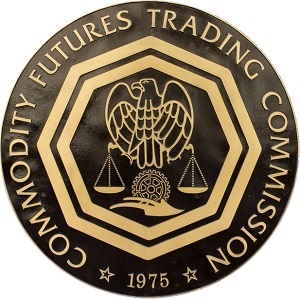CFTC Whistleblower Alert: Whistleblowers Wanted Relating to Misconduct in Carbon Markets

On Tuesday, the Commodity Futures Trading Commission (CFTC) issued a Whistleblower Alert calling for help in identifying fraud or manipulation in the carbon markets. The CFTC is the principal federal watchdog for fraud involving the commodities markets. Under the CFTC Whistleblower Program, those who voluntarily provide information that leads to a successful CFTC enforcement action are entitled to an award of up to thirty percent of any government recovery. Certainly a powerful reason for those with information on potential carbon market fraud to pay serious heed to the CFTC’s latest appeal.
Here is how the CFTC explains carbon markets and its authority to regulate them:
Carbon markets (“CMs”) support the transition to a low‐carbon economy through market‐based initiatives where carbon credits (a/k/a offsets) are purchased and sold either in an over‐the‐counter market or on spot exchanges. Carbon credits are the underlying commodity for futures contracts that are listed on CFTC designated contract markets (DCMs). The CFTC has enforcement authority and regulatory oversight over DCMs and any trading in those markets. The CFTC also has anti‐fraud and anti‐manipulation enforcement authority over the related spot markets for carbon credits. CFTC jurisdiction also applies to carbon allowances and other environmental commodities products that are linked to futures contracts.
And here is the type of market misconduct the CFTC is on the lookout for:
- Manipulative and wash trading or other potential violations relating to carbon market futures contracts.
- Fraud in the underlying spot markets relating to ghost credits listed on carbon market registries.
- Double counting or other fraud relating to carbon credits.
- Fraudulent statements relating to material terms of the carbon credit such as quality, quantity, additionality, project type, methodology substantiating the emissions claim, environmental benefits, permanence or duration, or the buffer pool.
- Manipulation of tokenized carbon markets.
In announcing the Whistleblower Alert, the CFTC pointed to a recent Morgan Stanley research paper to reinforce why regulating the carbon markets was such a key priority. Morgan Stanley found that while “many companies are working to eliminate emissions entirely, carbon offsets will remain a critical tool in fighting climate change.” It also projected the market “to grow from around $2 billion in 2022 to about $100 billion in 2030 and around $250 billion by 2050.”
The CFTC specifically pointed to this expected surge in market activity as a primary basis for its extra vigilance and need for whistleblower support. According to CFTC Director of Enforcement Ian McGinley:
As carbon credit markets continue to grow, we will act to foster the integrity of these markets by fighting fraud and manipulation. Whistleblowers are invaluable allies in these efforts. We will diligently investigate all credible tips and complaints from whistleblowers relating to carbon credit markets.
CFTC Chair Rostin Behnam echoed this pro-whistleblower sentiment: “Information from whistleblowers advances the Commission’s enforcement mission and, in turn, further builds integrity and trust in the carbon markets by rooting out fraud and manipulation.”
In a final plug for whistleblowers, the agency highlighted the roughly $330 million in whistleblower awards it has doled out over the last decade, stemming from enforcement actions recovering more than $3 billion for the government. Last year was the program’s most successful year yet with a record-breaking number of whistleblower submissions and its landmark $200 million whistleblower award, which by all accounts related to the $1.9 billion in government settlements Deutsche Bank paid over manipulation of the LIBOR global financial benchmark.
The bottom line is if you have information concerning potential misconduct in the carbon markets or any other commodities markets, the CFTC has made it clear it wants to hear from you. And they are very willing to put their money where their mouth is. If you would like to speak to an experienced member of the Constantine Cannon whistleblower lawyer team to learn more about what it means to be a CFTC whistleblower, or a whistleblower under any of the government’s other whistleblower rewards programs, please do not hesitate to contact us for a free and confidential consult.
Read More
- CFTC Whistleblower Program
- Fraud Regulated by the CFTC
- Our Whistleblower Team
- Contact Us Confidentially
Tagged in: CFTC Whistleblower Reward Program, Fraud in CFTC-Regulated Markets, Whistleblower Eligibility,